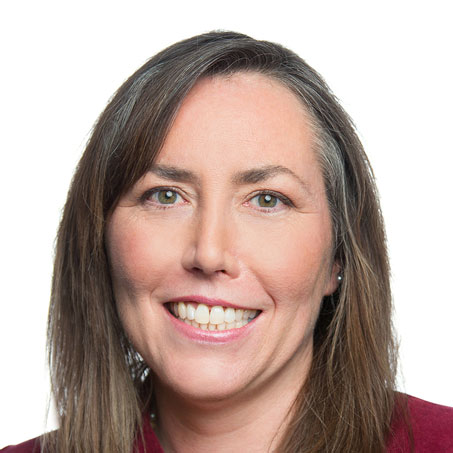JCHAI NEWS & PRESS
Our stories and relationships in our community.
Helping adults with disabilities age well in the Philly area
Repost from Philly.com

by Erin Arvedlund, Inquirer Staff Writer
What happens when adult children with disabilities become senior citizens?
It’s a growing reality that Judith Creed Homes for Adult Independence (JCHAI) is grappling with as its adult clients become seniors, some in their late 70s.
While trusts remain one of the best planning techniques for families with means, many adults with disabilities have more immediate needs, such as finding jobs and places to live, and learning new skills.
Started in 1987 as a residential group home for adults with developmental disabilities, JCHAI now helps clients who live in apartments around Philadelphia as well as offering one-on-one in-home programs providing social networks and jobs for people with developmental disabilities, brain injury, and autism.
Stacy Jarett Levitan, JCHAI’s executive director, based in Bryn Mawr, explains that clients live “as full a life as possible. What’s changed is life expectancy.” Those with Down syndrome can expect to live a normal life, vs. a previous lifespan only into their 40s, she noted.
Pennsylvania ranks 16th in the nation for Americans with disabilities, with 13.9 percent of the population qualifying as disabled. And there are 276,185 students in the state listed as receiving special-education benefits, or 15.9 percent of students. That’s up from 268,466, or 15.2 percent, in 2011-12.
JCHAI serves about 130 adults, ranging in age from 23 to the late 70s. About 80 of its clients live in their own apartments.
“Our residents come and go as they please,” Levitan said. The staff assists with paying bills, laundry, grocery shopping, and teaching skills.
Staffers visit apartments between noon and 8 p.m. Clients wake themselves, go to work, and often eat together upon returning home. “They don’t have to sit down for meals together at the same time, although many times they do, because they enjoy it,” she said.
JCHAI charges about $60 an hour for in-home services, and clients pay for their own housing. The total cost is $40,000 to $60,000 a year, which can be offset by Social Security payments, salaries from working, and scholarships.
“Clients can get apartments with Section 8 housing. Plus, for our residential services, we do fund-raising and scholarship on a sliding scale. The cost is kind of like paying for college tuition for the rest of your child’s life,” Levitan said.
Other options include living with parents; in state-licensed boarding and groups homes; at nursing homes for those with severe developmental disabilities; in shared-living arrangements, similar to foster care; or in housing through such state contractors as Kencrest, JEVS, or ARC in Chester County.
Leon, 68 and a JCHAI resident, retired from 35 years of working in food service at Drexel University. He and others make and serve lunch at the Perelman Jewish Day School in Wynnewood and Elkins Park.
“I never missed a day of work and I had six months of vacation unused when I left,” he said. He’s also a Phillies season ticket holder: Three seats behind home place, Section 122, Row 33. “I go to almost every game.”
Phyllis, 70, lives in a nearby apartment, and JCHAI staff helped her learn to cook. “Now I make enough for each day, and I have leftovers,” she said, showing off her spotless living space, which she cleans. Her neighbor Harriet, 62, used to work at a hotel laundry service and is now retired. Phyllis, Harriet, and another neighbor Debby, 50, volunteer about four days a week and are planning a group trip to Virginia Beach.

For more on JCHAI, call 610-922-2480 or visit www.jchai.org.
For those adults with disabilities living into old age, there are special estate planning options, said Peter Johnson, senior vice president with Pennsylvania Trust in Radnor. He specializes in financial planning and creating what are called “special-needs trusts” for those with intellectual and other disabilities. A special-needs trust protects any assets the adult children might inherit, as well as making sure they aren’t disqualified from medical and Social Security benefits.
This population is living longer, partly due to the end of warehousing in institutions and better care, “but they also experience medical issues at an earlier age,” said Johnson. Many with Down syndrome are now expected to develop Alzheimer’s.
The kids who were beneficiaries of these special-needs trusts are now turning 30, 40, and even older, Johnson added. He has helped clients with disabilities who lived well into their 80s, and urges parents of adult children with disabilities to set up a special-needs trust as soon as possible. Before the age of 65, people with disabilities can set up their own trust.
“Federal law doesn’t allow you to create a special-needs trust for yourself after the age of 65, because at that point you receive Social Security,” he added.
JCHAI receives $15K grant from Phillies Charities
Q&A: JCHAI's Stacy Jarett Levitan
Worker with developmental disabilities celebrates 12 years on job at Villanova.
Advocates Push for More Opportunities for Disabled Americans
JCHAI Tours La Colombe in Fishtown
JCHAI NAMED ONE OF AMERICA’S TOP 50 INNOVATIVE JEWISH ORGANIZATIONS
JCHAI Announces Partnership with La Colombe Coffee Roasters to Support the Organization’s New Coffee Shop Run by Adults with Developmental Disabilities, Including Autism
JCHAI Breaks Ground on New State-of-the-Art Education Center for Adults with Developmental Disabilities and Autism
Jefferson Employee Donates $7,500 on Behalf of The Schwartz Foundation
Success Story: Man With A Disability To Give Thousands To Charity
I AM J-CHAI
BREAKING BARRIERS: A BIG TENT FOR ALL
Celebrating ADA: An Interview with Jonah Selber and Judy Creed
Living The Success Other Disabled People Are Capable Of
-